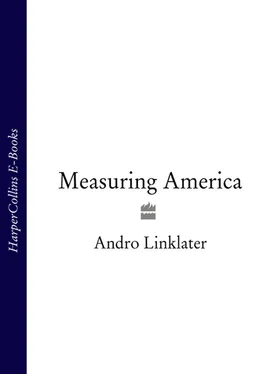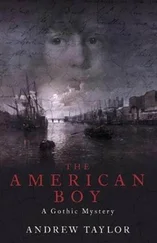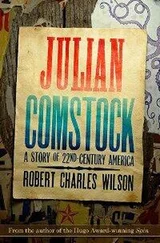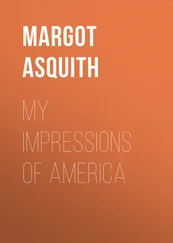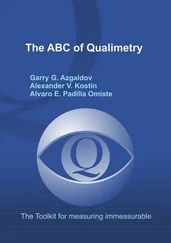Alas, poor Crawford never did. The King’s veto was still nominally in force when he was taken prisoner by a Cherokee band while leading a column of troops in territory beyond the Appalachians. On 3 August 1782 the Virginia Gazette carried a report of his ordeal by a Dr Knight, who had been captured along with Washington’s colleague: ‘… the unfortunate Colonel was led by a long rope to a stake, to which he was tied, and a quantity of red-hot coals laid around, on which he was obliged to walk bare-footed, the Indians at the same time torturing him with squibs of powder and burning sticks for two hours, when he begged of Simon Gurry (a white renegade who was present) to shoot him. [Gurry’s] reply was, “Don’t you see I have no gun.” [Crawford] was soon after scalped and struck several times on the bare skull with sticks, till being exhausted, he laid down on the burning embers, when the squaws put shovel-fuls of coals on his body, which made him move and creep till he expired. The Doctor was obliged to stand by and see this cruelty performed; they struck him in the face with the Colonel’s scalp, saying “This is your great Captain’s scalp, tomorrow we will serve you so.” ’
Gruesome stories such as these were used to justify acts of equal cruelty on the other side. John Heckewelder, a Moravian missionary living with the Tuscarawas Indians, told in 1773 of the Indian-hunters ‘who maintained that to kill an Indian was the same as killing a bear or a buffalo and would fire on Indians that came across them by the way – nay more, would decoy such as lived across the river to come over for the purpose of joining them in hilarity; and when these complied they fell on them and murdered them’.
These atrocities were evidence of the mounting conflict between land-hungry colonists and native inhabitants. Consequently when George III banned land purchases beyond the mountains, it was, as the proclamation worded it, so that ‘the several Nations or Tribes of Indians with whom We are connected, and who live under our Protection, should not be molested or disturbed’. But even Americans who might have sympathised with this strategy could not accept the King’s feudal right to impose the ban.
The power that the land beyond the mountains exerted on people’s minds can be deduced from the attempts to circumvent the veto. Two land companies had been created to speculate in the west before the ban was in place – the Ohio Company, which proposed to purchase 500,000 acres beyond the Ohio river, and the Loyal Land Company, organised by Peter Jefferson with investment coming mostly from his neighbours in Goochland County, Virginia, which aimed publicly at buying 800,000 acres of Kentucky, but privately had ambitions of exploring and acquiring millions more as far west as the Pacific Ocean. In the fifteen years after George III’s proclamation, a whole succession of similar speculative ventures came into being.
The Mississippi Company was created in 1768 to settle land along the river with George Washington as one of its founders, followed by the Illinois and Wabash in which Patrick Henry had an interest, and the Watauga Association which settled eastern Tennessee and later tried to establish the independent state of Franklin. In 1775 Judge Richard Henderson of North Carolina sent Daniel Boone, a brave scout but an incompetent surveyor, to find territory in southern Kentucky, where he signed a treaty with the Cherokee Indians giving Henderson’s Transylvania Company several million acres – Boone’s surveying lapses made it unclear exactly how much land was involved. The most ambitious of them all, the Vandalia Company, which aimed to acquire sixty-three million acres in what is now Illinois and Indiana, employed Benjamin Franklin as its London agent and even counted among its members such influential figures in the British government as the future Prime Minister, Lord North, and the Lord Chancellor, Lord Camden. ‘One half of England is now land mad,’ remarked one of its promoters, ‘and everybody there has their eyes fixed on this country.’
These powerful interests created some loopholes in the prohibition, but it was still in place in 1773 when a young surveyor named Rufus Putnam sailed up the Mississippi to Natchez. There he began surveying over a million acres on the banks of the river so that it could be sold to New England veterans of the French and Indian War. He was a rarity among the mostly southern land speculators, because he came from Massachusetts. His career is instructive because it illustrates how widely the effects of the ban were felt. In character he more or less resembled the coat of arms he later adopted which showed three bristly wild boars below a roaring lion surrounded by thistles and the motto in spiky Gothic lettering, ‘By the name of Putnam’, and almost everything he achieved he owed to his ferocious determination.
In 1745, when Rufus was barely seven years old, his father died, leaving the family destitute. His mother’s second marriage was to an illiterate drunkard named Sadler. ‘During the six years I lived with Capt Sadler,’ Rufus wrote bitterly, ‘I never Saw the inside of a School house except about three weeks.’ At the age of fifteen he apprenticed himself to a man who built watermills, and sucked up knowledge where he could; but as he confessed in his autobiography, ‘having no guid I knew not where to begin nor what corse to pursue – hence neglected Spelling and gramer when young [and] have Suffered much through life on that account’.
Rufus’s prospects were transformed by the French and Indian War. In 1757 he joined the Royal American Regiment, where he became an engineer, a trade that taught him how to carry out every kind of measurement. When peace came in 1763 the orphan used his new skill first to build mills, and later to survey land. The demand for surveyors in British America was such that a good practitioner could command an income that matched a lawyer’s. Even at the age of seventeen, George Washington was able to boast of his earnings to a friend. ‘A doubloon is my constant gain every day that will permit my going out,’ he wrote, ‘and sometimes six pistoles.’ Since a doubloon was worth about £15, and six pistoles around $22.50, a good week might bring in around $100; even as President he hardly earned much more.
Soon Rufus felt secure enough to marry the wealthy Persis Rice, daughter of Zebulon, who in the first six years of their marriage bore four daughters and a son. What he wanted, he wanted immediately. Neither in private nor public life did he ever show any guile, and rarely much patience. With five children to feed, and the expectation of more on the way, he turned to land speculation, surveying and acquiring land in the West Indies and what is now Alabama for New England veterans. The Natchez venture was on a far larger scale, and like George Washington, who was trying to secure land on the Ohio river for Virginia veterans of the same war, Rufus Putnam proposed to keep some of the best sites for himself.
It was Richard Henderson who put into words the dream that drew Rufus and thousands more into the western territory beyond the Blue Ridge and the Alleghenies. ‘The country might invite a prince from his palace merely for the pleasure of contemplating its beauty and excellence,’ he wrote in praise of his company’s Kentucky acres, ‘but only add the rapturous idea of property and what allurements can the world offer for the loss of so glorious a prospect?
When that rapturous idea was snatched away by the proclamation of a feudal monarch three thousand miles away, it was small wonder that the colonists should have felt the need to state not simply their inalienable right to life and liberty, but also to the acquisition of property. Typically, when Rufus too fell victim to the royal prohibition, he preferred action to words. He had spent eight months laying out the ground for future settlements at Natchez when the Board of Trade in London issued an order specifically forbidding any further surveys on the Mississippi. Returning home to Massachusetts, he found his personal frustration echoed in the accumulating anger of the colonists.
Читать дальше
